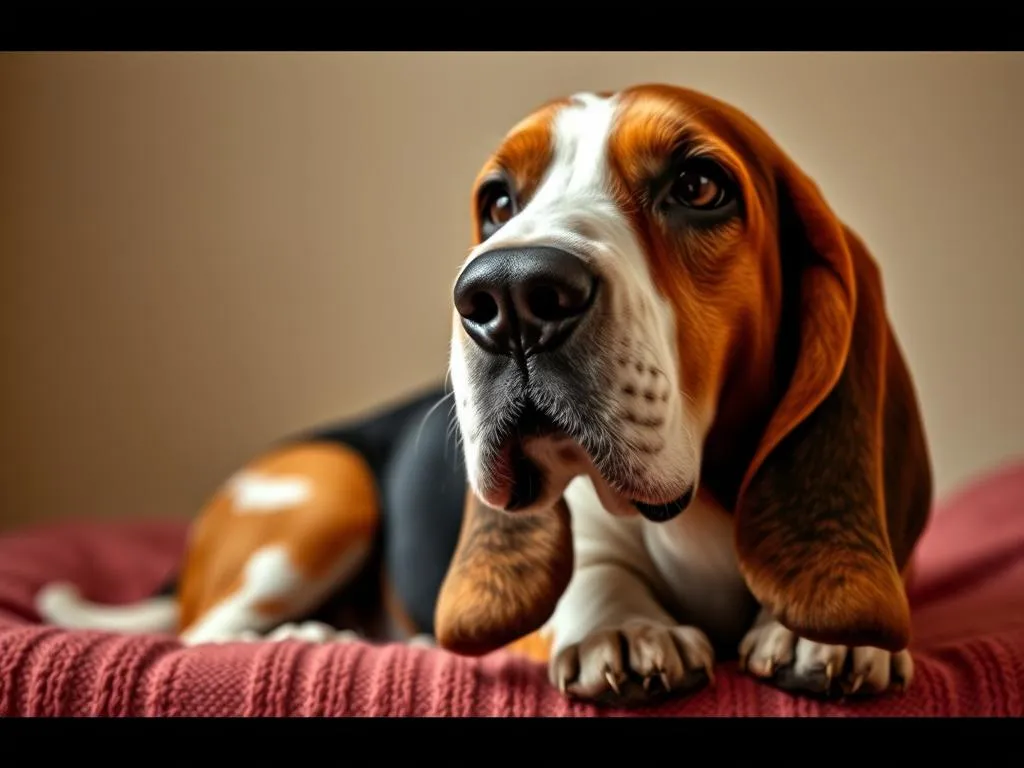
Introduction
Basset Hounds are a unique and lovable breed known for their distinctive appearance and gentle demeanor. With their droopy ears and soulful eyes, they have captured the hearts of many dog lovers. However, when considering adding a Basset Hound to your family, it’s crucial to evaluate how well they will fit into a household with children. The safety and happiness of both the dog and the kids should be a top priority. This article aims to assess whether a Basset Hound will be good with my kids, exploring the breed’s characteristics, temperament, and suitability for family life.
Understanding the Basset Hound Breed
Origin and History
The Basset Hound’s history dates back to the 6th century in France, where they were bred for tracking small game, particularly rabbits. Their name comes from the French word “bas,” which means low, signifying their short stature. Over time, they became popular in England, where they were further developed as a companion and hunting dog. Known for their extraordinary sense of smell, Basset Hounds are part of the hound group and are recognized for their unique physical traits and mellow temperament.
Physical Characteristics
Basset Hounds are medium-sized dogs, typically weighing between 40 to 65 pounds. They stand about 12 to 15 inches tall at the shoulder. Their most distinctive features include:
- Long, droopy ears: These help to trap scent particles and enhance their already keen sense of smell.
- Short legs: Their short stature adds to their unique charm and makes them appear quite comical.
- Loose skin and wrinkles: This not only contributes to their adorable appearance but also protects them while hunting.
Overall, their physical characteristics make them easily recognizable and endearing to many families.
Temperament and Personality Traits
Basset Hounds are often described as friendly, laid-back, and affectionate. They tend to be good-natured and can get along well with various pets and children. Typical personality traits include:
- Gentle demeanor: Basset Hounds are not aggressive and usually display a calm disposition.
- Playfulness: While they enjoy a good romp, they are also content to lounge around the house.
- Stubbornness: They can be quite independent, which may pose challenges during training.
These traits make Basset Hounds appealing to families looking for a loving companion that can fit into a busy household.
The Basset Hound and Children
How Basset Hounds Interact with Kids
When it comes to interacting with children, Basset Hounds generally exhibit gentle and affectionate behavior. They often enjoy being around kids and can be quite playful. Their laid-back nature means they are less likely to react aggressively, making them a suitable choice for families with young ones.
Suitability for Families
Basset Hounds have several traits that make them good with kids, such as:
- Affectionate nature: They enjoy human company and are often very affectionate with their families, including children.
- Tolerance: Basset Hounds are generally tolerant dogs that can handle the typical antics of children, such as loud noises and playful roughhousing.
However, there are some potential challenges. Basset Hounds can be stubborn, which may necessitate patience during training. Additionally, while they are generally good with children, supervision is always recommended, especially with younger kids who may not yet understand how to interact appropriately with dogs.
Age Considerations
The age of your children can also impact how well a Basset Hound will fit into your family. Generally, the best ages for kids to interact with Basset Hounds range from 5 years and up. For infants and toddlers, introducing Basset Hounds should be done with care. Here are some tips for introducing Basset Hounds to younger children:
- Supervised interactions: Always supervise the initial meetings to ensure both the dog and child feel comfortable.
- Teach gentle behavior: Show children how to approach the dog gently and respect its space.
- Gradual introductions: Allow the dog to sniff and explore the child’s presence before full interactions occur.
These steps can help foster a positive relationship between your Basset Hound and your children.
Factors to Consider Before Getting a Basset Hound
Lifestyle Compatibility
Before bringing a Basset Hound into your home, consider your family’s lifestyle. Basset Hounds are fairly adaptable but do require daily exercise and mental stimulation. If your family is very active, a Basset Hound may fit in well, but be mindful of their lower energy levels compared to other breeds.
Space Requirements
Basset Hounds do well in various living situations, but their size and activity level must be taken into account. They can thrive in apartments or houses as long as they receive regular exercise. However, they will benefit from access to a yard where they can explore and play. Ensure your living space is safe and secure, as Basset Hounds can be prone to wandering.
Allergies and Health Concerns
It’s essential to consider whether anyone in your family has allergies. Basset Hounds are not hypoallergenic, and while they may not produce excessive dander, it’s crucial to observe any potential reactions. Additionally, Basset Hounds are prone to certain health issues, including:
- Obesity: Their propensity for weight gain can lead to serious health complications.
- Ear infections: Their long ears require regular cleaning to prevent infections.
- Hip dysplasia: This is a common concern in the breed, so regular vet check-ups are important.
Being aware of these health issues can help you prepare for responsible pet ownership.
Training and Socialization
Importance of Early Training
Training and socialization are vital for any breed, but especially for Basset Hounds due to their stubborn nature. Early training can help instill good behavior and foster a positive relationship with children. Consider the following benefits of early training:
- Improved behavior: Proper training can help mitigate stubbornness and enhance obedience.
- Positive interactions: Socializing your Basset Hound with children from an early age can lead to more comfortable and enjoyable interactions.
Teaching Kids How to Interact Safely
It is essential to teach children how to interact safely with Basset Hounds. Here are guidelines for fostering positive interactions:
- Approach calmly: Kids should be encouraged to approach the dog calmly and avoid sudden movements.
- Respect the dog’s space: Teach children to understand when the dog wants to be left alone.
- Gentle play: Encourage gentle play, avoiding roughhousing that may stress the dog.
Ongoing Training Needs
Consistent training shouldn’t stop once your Basset Hound is settled into your home. Ongoing training can help maintain good behavior. Engaging activities such as group training classes or games can strengthen the bond between your Basset Hound and your kids while providing mental and physical stimulation.
Real-Life Experiences from Families
Testimonials from Basset Hound Owners
Many families have shared positive experiences about raising Basset Hounds alongside children. Owners often describe their Basset Hounds as loving companions who become integral parts of the family. Stories often highlight moments of playfulness and affection that showcase the breed’s gentle nature.
However, challenges do exist. Some families report issues with stubbornness during training or instances where the dog may inadvertently knock over a small child while being playful. These challenges are typically manageable with consistent training and supervision.
Expert Opinions
Experts, including dog trainers and veterinarians, often view Basset Hounds as suitable family pets. Their laid-back nature and loving disposition make them good companions for children. However, they caution that early training and socialization are key to ensuring positive interactions. Many recommend adopting Basset Hounds from shelters or reputable breeders who prioritize socialization during the critical early months.
Conclusion
After reviewing the characteristics, behaviors, and family compatibility of Basset Hounds, it’s clear that a Basset Hound will be good with my kids for many families. Their affectionate nature and gentle temperament make them suitable companions for children, provided that training and supervision are prioritized. As with any breed, the decision to bring a Basset Hound into your home should be based on your family dynamics, lifestyle, and readiness to commit to responsible pet ownership. Ultimately, Basset Hounds can enrich family life with their unique charm and loving presence, making them a delightful addition to many households.









